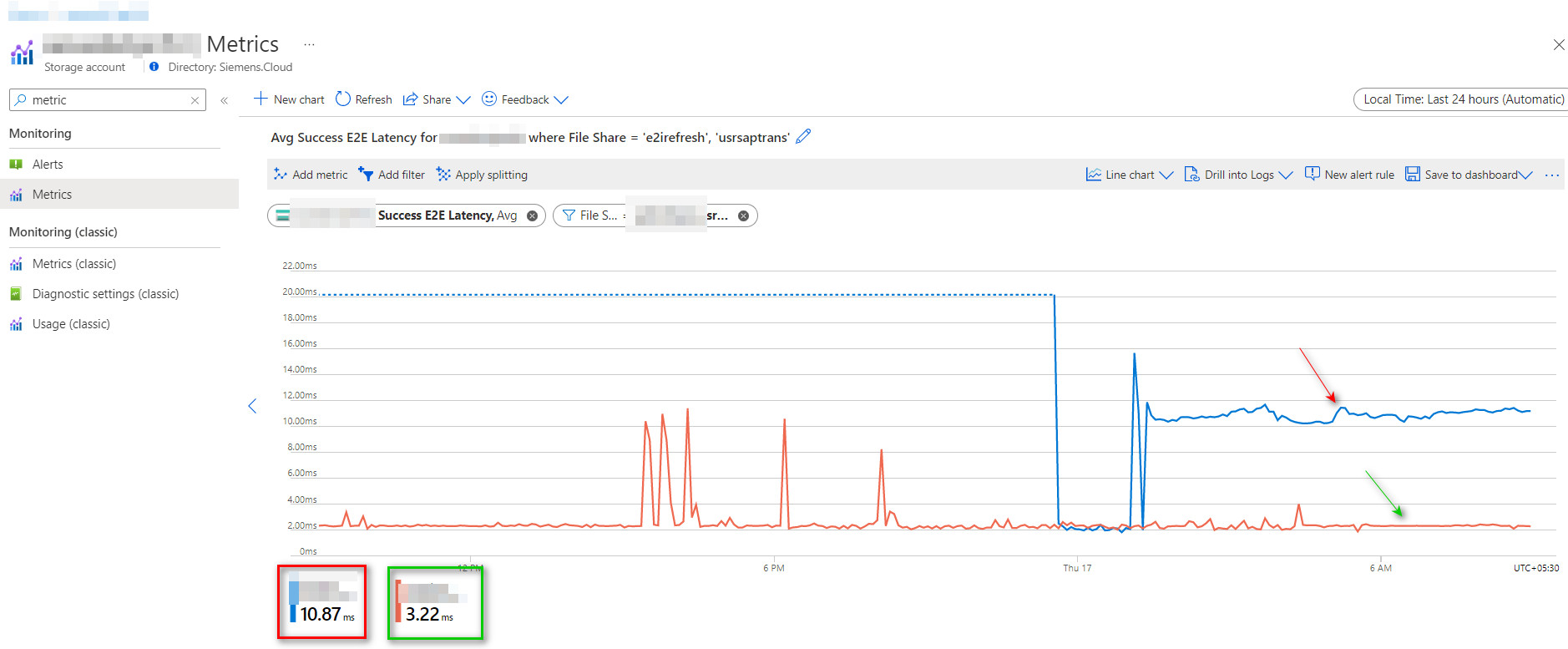@Rajesh Swarnkar Welcome to Microsoft Q&A Forum, Thank you for posting your query here!
Can you please cross verify the speed through Azure speed test tool https://www.azurespeed.com and let me know the status?
There is no throttling on the Azure side, refer to below article. If the network and client machine can handle the traffic then we will send it.
Best practice to reference Troubleshoot Azure Files performance issues . This article lists some common problems related to Azure file shares and provides potential causes and workarounds: https://learn.microsoft.com/en-us/azure/storage/files/storage-troubleshooting-files-performance
This kind of problem some times may occur due to not enough cache on client machine for large directories.
You reduce the issue by adjusting the DirectoryCacheEntrySizeMax registry value to allow caching of larger directory listing to client Machine.
Location : Computer\HKEY_LOCAL_MACHINE\SYSTEM\CurrentControlSet\Services\LanmanServer\Parameters
Value Name: DirectoryCacheEntrySizeMax
Value type : DWORD
Ex: You can set it to 0X100000 and see if the performance becomes better
Performance tuning for file servers
If the issue still persist, can you download PerfInsights tool, for Performance data collection Windows
Using PerfInsights:
- Execute PerfInsights using the Azure Files scenario: PerfInsights.exe /r azurefiles /sr 9971**9
- Select Y to agree to share diagnostic information
- Select Y to agree PerfInsights EULA.
- Reproduce the performance issue or make sure that it's occurring.
- When enough data is collected , press any key to stop diagnostic data collection.
- Retrieve the compressed file created under the current folder with format similar to "CollectedData_YYYY-MM-DD_HH-MM-FFF.zip"
You might see slow performance when you try to transfer files to the Azure File service.
If you don't have a specific minimum I/O size requirement, we recommend that you use 1 MiB as the I/O size for optimal performance.
If you know the final size of a file that you are extending with writes, and your software doesn't have compatibility problems when the unwritten tail on the file contains zeros, then set the file size in advance instead of making every write an extending write.
Here's a guide for troubleshooting high E2E latency:
For testing purpose can you use Azcopy tools and check the speed and let me know the status. For transferring Files I would recommend to use AzCopy and File Storage for any transfer files(upload and download). In Azcopy throughput from a single instance will scale at least 20Gbps
Additional information: Sometimes your proxies/VMs or whatever runs in the same datacenter, network requests does not leave the local network and the speed then depends on the infrastructure. (routers, firewalls, cables, etc). I'm sure they won't limit speed between their own infrastructure so services hosted on the same network works at full speed.
Note: Windows OS/Windows Explorer is configured by default, it uses a 4K block size that will produce slower speeds for SMB compared to AzCopy/Storage Explorer which uses REST API.
After trying all the above mentioned suggestion, if the issue still persist. This may require a deeper investigation, so If you have a support plan, I request you file a support ticket, else please do let us know.
Please let us know if you have any further queries. I’m happy to assist you further.
----------
Please do not forget to  and “up-vote” wherever the information provided helps you, this can be beneficial to other community members.
and “up-vote” wherever the information provided helps you, this can be beneficial to other community members.


